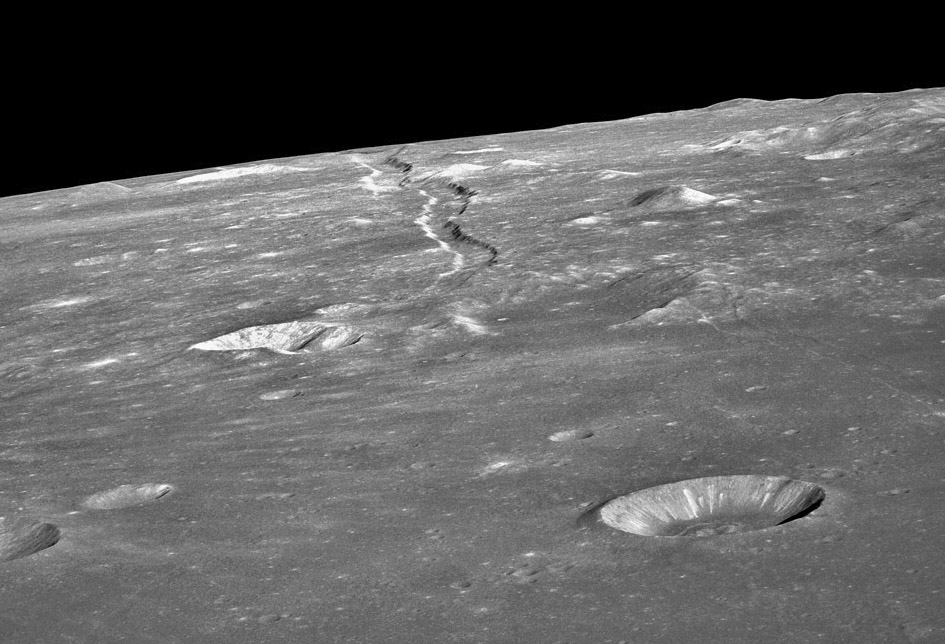Difference between revisions of "May 21, 2009"
| Line 1: | Line 1: | ||
__NOTOC__ | __NOTOC__ | ||
=Almost There= | =Almost There= | ||
| − | |||
<!-- ws:start:WikiTextHeadingRule:2:<h1> --> | <!-- ws:start:WikiTextHeadingRule:2:<h1> --> | ||
<!-- ws:start:WikiTextLocalImageRule:8:<img src="/file/view/LPOD-May21-09.jpg/74490073/LPOD-May21-09.jpg" alt="" title="" /> -->[[File:LPOD-May21-09.jpg|LPOD-May21-09.jpg]]<!-- ws:end:WikiTextLocalImageRule:8 --><br /> | <!-- ws:start:WikiTextLocalImageRule:8:<img src="/file/view/LPOD-May21-09.jpg/74490073/LPOD-May21-09.jpg" alt="" title="" /> -->[[File:LPOD-May21-09.jpg|LPOD-May21-09.jpg]]<!-- ws:end:WikiTextLocalImageRule:8 --><br /> | ||
| − | <em>Apollo 10-30-4450 image from [http://history.nasa.gov/ap10fj/photos/30-q/as10-30-4450.jpg NASA Public Affairs Office] by way of the much appreciated [http://history.nasa.gov/ap10fj/as10-image-library.htm Apollo 10 Flight Journal]</em><br /> | + | <em>Apollo 10-30-4450 image from [http://history.nasa.gov/ap10fj/photos/30-q/as10-30-4450.jpg" rel="nofollow NASA Public Affairs Office] by way of the much appreciated [http://history.nasa.gov/ap10fj/as10-image-library.htm" rel="nofollow Apollo 10 Flight Journal]</em><br /> |
<br /> | <br /> | ||
| − | Forty years ago today, a phrase we will hear often during the next months and years, Apollo 10 entered lunar orbit for a nearly full rehearsal for the Apollo 11 landing two months later. The astronauts circled the Moon for two and a half days, with Tom Stafford and Gene Cernan in the lunar module sweeping down to within 16 km of the surface, and John Young up higher in the command module. The crew took 9 magazines of Hasselblad 70 mm pictures, including many classics. This marvelous oblique view was obviously taken by an alert human, waiting for a perfect composition. We look pass Manners, up the Ariadaeus valley. The rille, which looks relatively linear when [http://www.lpod.org/archive/archive/2004/03/LPOD-2004-03-31.htm seen] from Earth, is notably sinuous with three are four gentle bends. If the rille follows a dike, as is often modeled, then the question is why was the dike sinuous? This low oblique perspective also highlights the missing rim where the probable simultaneous impact craters Ariadaeus and Ariadaeus A overlap. And the tall isolated hill north (right) of the rille is an oddity. It is part of the south rim of a nearly destroyed crater, but why is it vastly taller than any other rim segment? When admiring this wonderful image, recall that it is not the [http://www.lpod.org/archive/LPOD-2005-05-28.htm famous] Apollo 10 view of this prominent rille!<br /> | + | Forty years ago today, a phrase we will hear often during the next months and years, Apollo 10 entered lunar orbit for a nearly full rehearsal for the Apollo 11 landing two months later. The astronauts circled the Moon for two and a half days, with Tom Stafford and Gene Cernan in the lunar module sweeping down to within 16 km of the surface, and John Young up higher in the command module. The crew took 9 magazines of Hasselblad 70 mm pictures, including many classics. This marvelous oblique view was obviously taken by an alert human, waiting for a perfect composition. We look pass Manners, up the Ariadaeus valley. The rille, which looks relatively linear when [http://www.lpod.org/archive/archive/2004/03/LPOD-2004-03-31.htm" rel="nofollow seen] from Earth, is notably sinuous with three are four gentle bends. If the rille follows a dike, as is often modeled, then the question is why was the dike sinuous? This low oblique perspective also highlights the missing rim where the probable simultaneous impact craters Ariadaeus and Ariadaeus A overlap. And the tall isolated hill north (right) of the rille is an oddity. It is part of the south rim of a nearly destroyed crater, but why is it vastly taller than any other rim segment? When admiring this wonderful image, recall that it is not the [http://www.lpod.org/archive/LPOD-2005-05-28.htm" rel="nofollow famous] Apollo 10 view of this prominent rille!<br /> |
<br /> | <br /> | ||
| − | <em>[mailto:tychocrater@yahoo.com Chuck Wood]</em><br /> | + | <em>[mailto:tychocrater@yahoo.com" rel="nofollow Chuck Wood]</em><br /> |
<br /> | <br /> | ||
<strong>Technical Details</strong><br /> | <strong>Technical Details</strong><br /> | ||
| − | Apollo 10 [http://www.lpi.usra.edu/lunar/missions/apollo/apollo_10/photography/ photography]<br /> | + | Apollo 10 [http://www.lpi.usra.edu/lunar/missions/apollo/apollo_10/photography/" rel="nofollow photography]<br /> |
<br /> | <br /> | ||
<strong>Related Links</strong><br /> | <strong>Related Links</strong><br /> | ||
Rükl plates [http://the-moon.wikispaces.com/Rukl+34 34] & [http://the-moon.wikispaces.com/Rukl+35 35]<br /> | Rükl plates [http://the-moon.wikispaces.com/Rukl+34 34] & [http://the-moon.wikispaces.com/Rukl+35 35]<br /> | ||
| − | <em>Science News</em> [http://www.newscientist.com/blogs/shortsharpscience/2009/05/nasas-controversial-dress-rehe.html account] of mission decision.<br /> | + | <em>Science News</em> [http://www.newscientist.com/blogs/shortsharpscience/2009/05/nasas-controversial-dress-rehe.html" rel="nofollow account] of mission decision.<br /> |
<br /> | <br /> | ||
<hr /> | <hr /> | ||
Revision as of 19:08, 4 January 2015
Almost There

Apollo 10-30-4450 image from " rel="nofollow NASA Public Affairs Office by way of the much appreciated " rel="nofollow Apollo 10 Flight Journal
Forty years ago today, a phrase we will hear often during the next months and years, Apollo 10 entered lunar orbit for a nearly full rehearsal for the Apollo 11 landing two months later. The astronauts circled the Moon for two and a half days, with Tom Stafford and Gene Cernan in the lunar module sweeping down to within 16 km of the surface, and John Young up higher in the command module. The crew took 9 magazines of Hasselblad 70 mm pictures, including many classics. This marvelous oblique view was obviously taken by an alert human, waiting for a perfect composition. We look pass Manners, up the Ariadaeus valley. The rille, which looks relatively linear when " rel="nofollow seen from Earth, is notably sinuous with three are four gentle bends. If the rille follows a dike, as is often modeled, then the question is why was the dike sinuous? This low oblique perspective also highlights the missing rim where the probable simultaneous impact craters Ariadaeus and Ariadaeus A overlap. And the tall isolated hill north (right) of the rille is an oddity. It is part of the south rim of a nearly destroyed crater, but why is it vastly taller than any other rim segment? When admiring this wonderful image, recall that it is not the " rel="nofollow famous Apollo 10 view of this prominent rille!
" rel="nofollow Chuck Wood
Technical Details
Apollo 10 " rel="nofollow photography
Related Links
Rükl plates 34 & 35
Science News " rel="nofollow account of mission decision.



